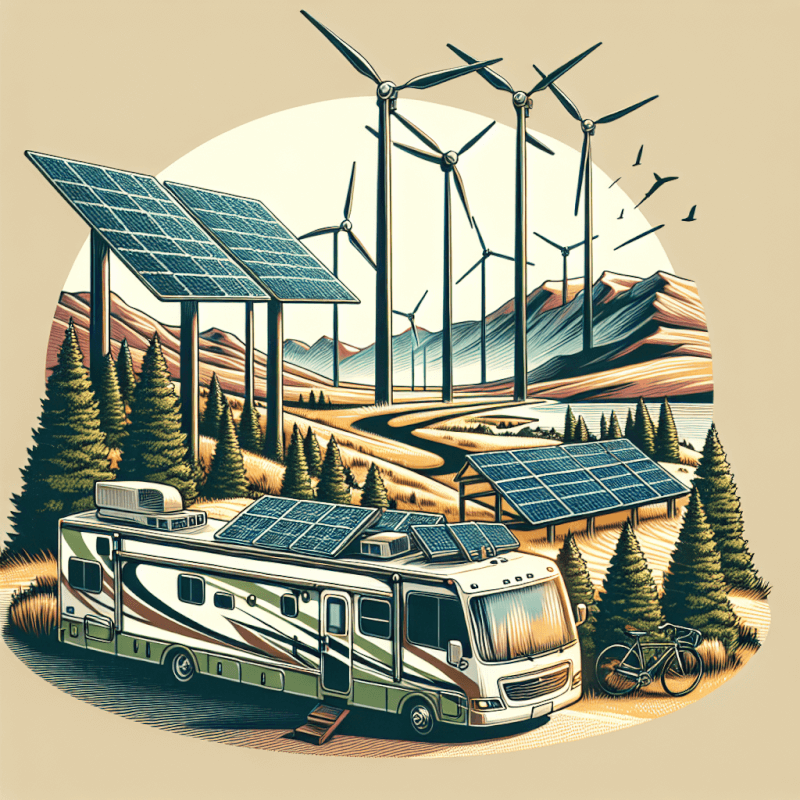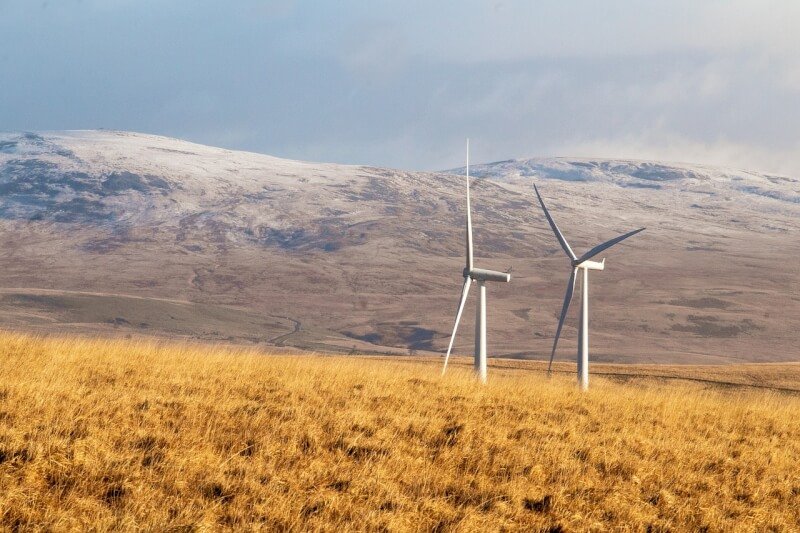If you’re an avid adventurer and a fan of RV living, you may have wondered if it’s possible to harness the power of renewable energy sources for your motorhome. Well, guess what? It absolutely is! In this article, we’ll explore the exciting possibilities of utilizing wind and solar energy to power your RV. Imagine the freedom of enjoying the great outdoors while also reducing your environmental footprint. Get ready to learn how you can bring sustainability on the road and make your RV journey even more rewarding.
Benefits of Using Renewable Energy Sources in an RV
Reduced reliance on fossil fuels
Using renewable energy sources in your RV can significantly reduce your reliance on fossil fuels. Traditional RVs rely on gasoline or diesel to power their engines and generators, which contribute to air pollution and greenhouse gas emissions. By tapping into renewable energy sources such as wind or solar power, you can reduce your carbon footprint and contribute to a cleaner environment.
Cost savings
Renewable energy sources can also lead to significant cost savings in the long run. While the initial investment in solar panels, wind turbines, or hydroelectric systems may seem expensive, you can enjoy the benefits of free energy from the sun, wind, or water in the long term. By generating your own electricity, you can potentially reduce or eliminate the need to rely on expensive campground or RV park hook-ups, saving you money on utility bills.
Environmentally friendly
Using renewable energy sources in your RV is not only beneficial for your personal savings but also for the environment. Traditional energy sources, such as fossil fuels, contribute to air and water pollution, as well as climate change. By utilizing renewable energy, you can help reduce greenhouse gas emissions and protect natural resources, making your RVing adventures more eco-friendly.
Increased energy independence
Another advantage of using renewable energy sources in your RV is increased energy independence. When you rely solely on traditional fuel sources, you are subject to fluctuations in fuel prices and availability. By generating your own energy, you become less dependent on external factors and have the freedom to travel off-grid for extended periods. This newfound energy independence allows for more flexibility and spontaneity in your RV lifestyle.
Understanding the Energy Needs of an RV
Calculating energy requirements
Before you can start harnessing renewable energy, it’s crucial to understand your RV’s energy requirements. Take inventory of all the appliances and devices you plan to power and estimate their daily energy consumption. This includes items such as lights, refrigerators, air conditioners, water pumps, and entertainment systems. By determining your energy needs, you can accurately size and select the right renewable energy system for your RV.
Identifying the suitable renewable energy sources
Once you know your energy requirements, it’s time to identify the most suitable renewable energy sources for your RV. Solar, wind, and hydroelectric power are the most common options. Solar energy is abundant and works well in most regions, making it a popular choice for RVers. Wind energy can be harnessed when the RV is stationary in windy areas, and hydroelectric power is feasible when near a water source. Consider the advantages and limitations of each source to make an informed decision.
Powering essential appliances and devices
After identifying the suitable renewable energy sources, you need to determine how to power your essential appliances and devices. Some appliances, like lights or phone chargers, consume minimal energy and can be easily powered by renewable sources alone. However, high-energy consumption devices such as air conditioners or refrigerators may require additional power from an alternative source, like a battery or generator. Balancing your energy needs and available resources is crucial to ensure a reliable power supply in your RV.
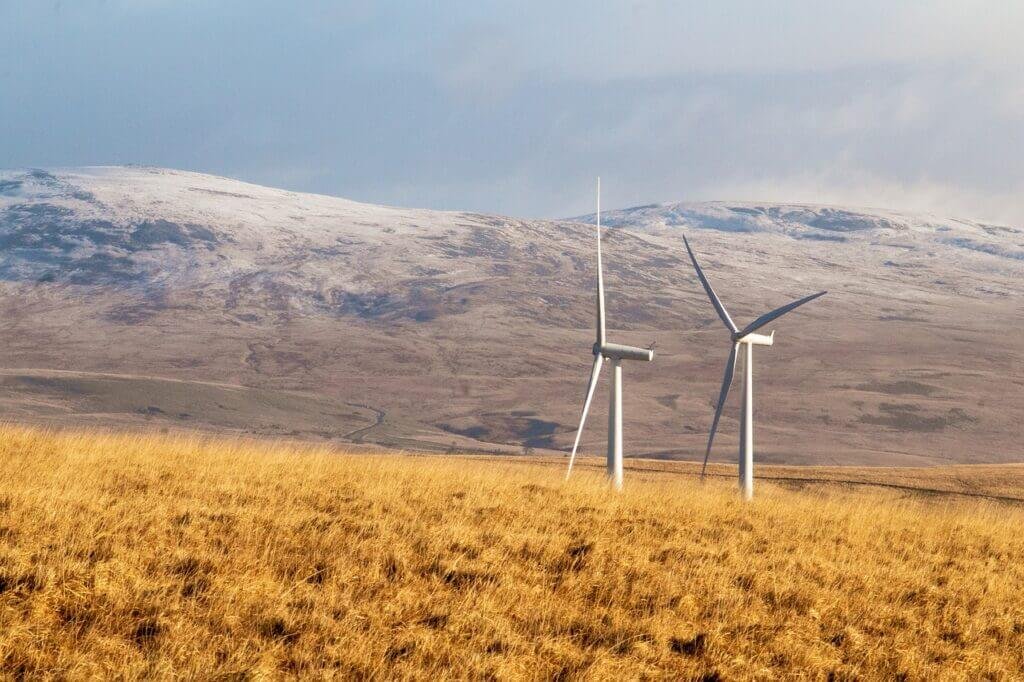
Solar Energy for RVs
Overview of solar power
Solar energy is a popular choice among RVers due to its abundance and ease of installation. Solar panels harness the energy from the sun and convert it into electricity. The solar panels consist of photovoltaic cells that produce a direct current (DC), which is then converted to alternating current (AC) using an inverter. This AC power can be used to charge batteries, run appliances, or even feed back excess energy into the grid if you have a grid-tied system.
Pros and cons of using solar energy in an RV
There are several advantages to utilizing solar energy in your RV. Firstly, solar power is clean and renewable, making it an eco-friendly choice. Additionally, solar panels have no moving parts, making them highly reliable and low-maintenance. Solar installations also operate silently, ensuring a peaceful RV experience. However, a potential disadvantage is that solar power is dependent on sunlight availability and may not be as efficient in cloudy or shaded areas. It’s essential to consider your RV’s typical travel destinations and their solar potential before committing to a solar power system.
Choosing the right solar panels
When selecting solar panels for your RV, consider factors such as their size, efficiency, and durability. RV solar panels are typically smaller and more compact than those used on residential rooftops. Look for panels specifically designed for RV applications that can withstand vibrations and harsh weather conditions. Ensure the chosen panels can generate enough power to meet your energy requirements and fit within the available roof space on your RV.
Ensuring proper installation and maintenance
Proper installation and maintenance are crucial for maximizing the effectiveness of your solar power system. This includes securely mounting the panels on your RV’s roof, ensuring optimal sun exposure, and wiring the system correctly. Regularly clean the panels to remove dirt and debris that could reduce their efficiency. It’s also wise to periodically inspect the wiring connections and monitor the system’s performance to identify any potential issues early on.
Wind Energy for RVs
Overview of wind power
Wind energy harnesses the power of the wind to generate electricity. In the context of RVs, wind turbines are used to capture the wind’s energy and convert it into electrical power. Wind power can be an excellent option for RVers who frequently travel to windy areas or have a stationary RV setup. It offers a reliable and consistent source of energy, even when the sun is not as readily available.
Pros and cons of using wind energy in an RV
Using wind energy in your RV has several advantages. Wind turbines are compact and can be easily mounted on your RV or in a nearby location. They are low-maintenance and can generate power even during nighttime or cloudy conditions. However, wind power has a few limitations. It requires a minimum wind speed to operate efficiently, so it may not be suitable for all travel destinations. Additionally, wind turbines can produce noise, which may affect your RVing experience if not properly addressed.
Selecting the appropriate wind turbine
When choosing a wind turbine for your RV, consider factors such as size, efficiency, noise level, and ease of installation. Smaller wind turbines are typically more suitable for RV applications, as they are more manageable and cause less vibration. Look for turbines specifically designed for RVs that can withstand the rigors of travel and operate optimally within the average wind speeds you encounter during your trips.
Ensuring proper installation and maintenance
Proper installation and regular maintenance are essential for a functional and efficient wind power system in your RV. Mount the wind turbine securely, considering any weight limitations and aerodynamic factors. Position the turbine to capture the best wind flow and minimize turbulence caused by nearby obstructions. Regularly inspect and maintain the turbine, ensuring it remains balanced and free from any debris or damage. Follow the manufacturer’s guidelines for maintenance tasks and seek professional assistance when necessary.
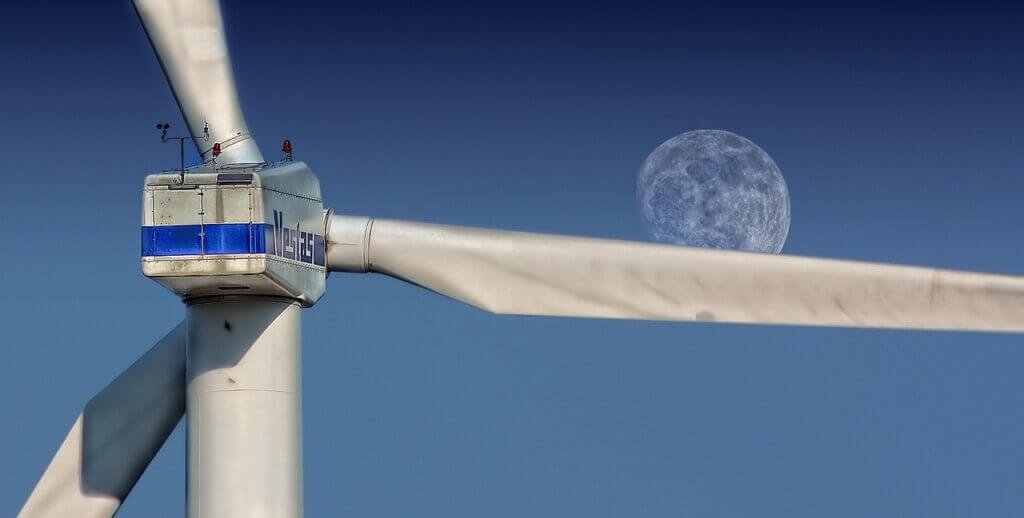
Hydroelectric Energy for RVs
Overview of hydroelectric power
Hydroelectric power utilizes the force of flowing water, such as rivers or streams, to generate electricity. Although less common in RV applications, it can be a viable option if you frequently camp near a water source. Hydroelectric systems generally consist of a turbine that spins as water flows through it, generating electrical current. In an RV, a small-scale hydroelectric system can provide a reliable source of power, especially in remote areas.
Suitability and limitations of hydroelectric power in an RV
The suitability of hydroelectric power for your RV depends on your camping destinations. If you often find yourself near a flowing water source, such as a river or stream, hydroelectric power can be a sustainable and reliable option. However, keep in mind that hydroelectric systems require a significant amount of water flow to operate efficiently. They also require careful planning and engineering to ensure proper installation and compatibility with your RV’s plumbing system.
Utilizing water sources efficiently
To harness hydroelectric power in your RV, you need a reliable and consistent source of flowing water. Assess the availability and suitability of nearby water sources before considering a hydroelectric system. Ensure you have legal access to the water source and take precautions to minimize any negative impact on the environment. It’s essential to develop a comprehensive understanding of the local regulations and guidelines pertaining to water usage before installing a hydroelectric system in your RV.
Installation considerations
Installing a hydroelectric system in an RV requires careful planning and consideration. Ensure your RV’s plumbing system is compatible with the proposed setup and can handle the water flow required for power generation. Avoid modifications that may compromise the structural integrity or weight distribution of your RV. Seek professional assistance with the installation process to ensure that it meets all safety requirements and operates effectively.
Combination of Renewable Energy Sources
Maximizing energy generation with hybrid systems
Combining multiple renewable energy sources can help maximize energy generation in your RV. By integrating solar, wind, and hydroelectric systems, you can take advantage of different energy sources depending on the weather conditions and location. A hybrid system allows for increased energy production and better efficiency, ensuring a reliable power supply regardless of external factors.
Optimizing energy storage capabilities
In addition to generating energy, it’s essential to have a reliable energy storage system in your RV. Batteries play a crucial role in storing excess energy generated by renewable sources for later use, especially during periods of low sunlight, wind, or water flow. Consider investing in deep-cycle batteries specifically designed for renewable energy storage. Optimize your battery capacity to accommodate your energy needs and ensure a continuous power supply during periods of low renewable energy generation.
Balancing different renewable energy sources
To create a balanced renewable energy system, it’s important to assess and adjust the capacity of each energy source according to your energy requirements. For example, if your RV primarily relies on solar power, but you frequently visit windy locations, ensure you have a wind turbine with sufficient capacity to complement your solar panels. A well-balanced system maximizes energy production while minimizing dependence on external energy sources.
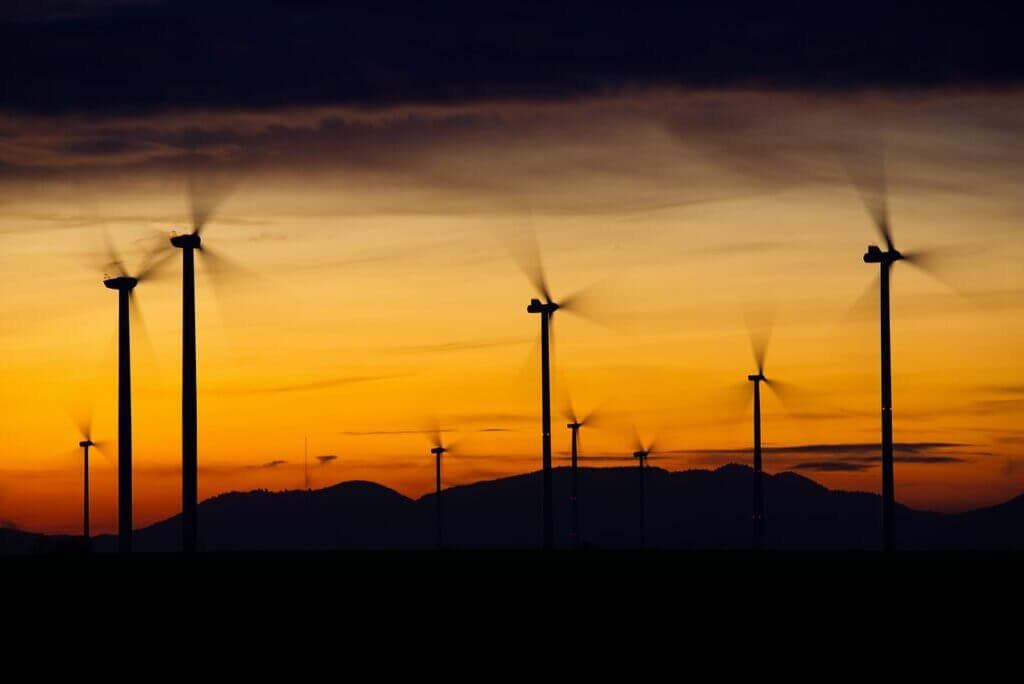
Battery Systems for Storing Renewable Energy
Types of batteries for RVs
When it comes to storing renewable energy in your RV, several battery options are available. Deep-cycle batteries are commonly used in RV applications due to their ability to withstand repeated charging and discharging cycles. Flooded lead-acid, sealed lead-acid, and lithium-ion batteries are the most commonly used types in RVing. Each battery type has its own advantages and limitations, so consider your energy storage needs, budget, and maintenance requirements before making a decision.
Calculating battery capacity
To determine the appropriate battery capacity for your RV, consider your energy consumption patterns and the length of time you plan to be off-grid. Start by estimating your daily energy usage in kilowatt-hours (kWh) and multiply it by the number of days you want your battery system to last. Taking into account battery efficiency and the depth of discharge, you can then determine the required battery capacity in ampere-hours (Ah). It’s essential to have enough battery capacity to meet your energy needs while considering factors such as weight, available space, and budget.
Maintenance and safety considerations
Proper maintenance is crucial to prolonging the lifespan and optimizing the performance of your RV’s battery system. Regularly inspect and clean the battery terminals, ensuring they are free of corrosion. Monitor the battery’s state of charge to prevent overcharging or deep discharging, as it can significantly impact the battery’s lifespan. Follow the manufacturer’s guidelines for maintenance tasks and safety precautions, such as avoiding exposure to extreme temperatures and protecting the batteries from physical damage.
Efficient Energy Management in an RV
Monitoring energy usage
Efficient energy management starts with monitoring and understanding your energy usage in your RV. Use energy monitoring tools and devices to track the energy consumption of individual appliances and devices. By identifying energy-hungry devices and adjusting your usage, you can optimize your energy consumption. This knowledge also helps you make informed decisions regarding energy generation and storage capacity requirements.
Implementing energy-saving practices
Once you are aware of your energy consumption patterns, implement energy-saving practices in your RV. Use LED lights instead of incandescent bulbs, as they are more energy-efficient. Minimize unnecessary use of appliances and devices, and turn them off when not in use. Insulate your RV to reduce heating and cooling needs. By adopting these practices, you can reduce your energy demand and optimize the effectiveness of your renewable energy system.
Using energy-efficient appliances
Investing in energy-efficient appliances can significantly contribute to reducing your RV’s energy consumption. Look for appliances with energy-saving labels or Energy Star certifications. Choose efficient refrigerators, air conditioners, and other devices that require less power to operate. When purchasing new appliances for your RV, consider their energy consumption ratings and opt for the most efficient models available. The energy saved from using energy-efficient appliances can be used for other essential needs in your RV.
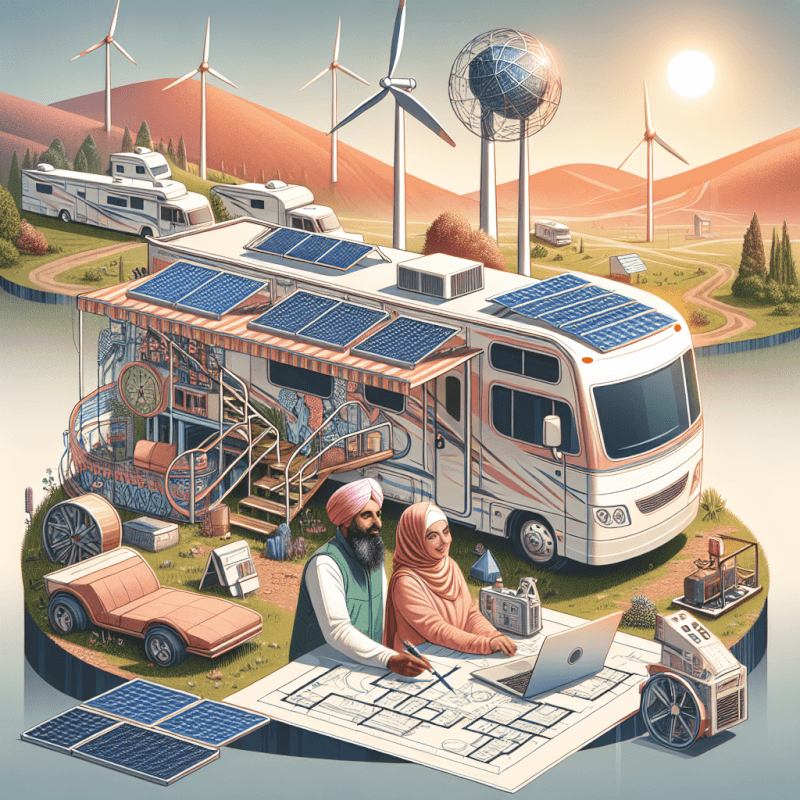
Considerations for RV Solar Installations
Roof space and weight limitations
Before installing solar panels on your RV’s roof, carefully consider the available space and weight limitations. RV roofs have limited space, so it’s essential to select solar panels that fit within these restrictions. Additionally, consider the total weight of the solar panels and mounting hardware to ensure it does not exceed your RV’s weight capacity. Be mindful of any additional weight on the roof, as it can affect stability and fuel efficiency.
Adequate sun exposure and positioning
To maximize the solar energy generation in your RV, ensure your solar panels have adequate sun exposure. Park your RV in locations where it receives the most sunlight throughout the day. Avoid parking in shaded areas or where nearby structures may obstruct sunlight. If necessary, use solar panel tilting mechanisms or adjustable mounts to optimize the angle of the panels and increase their exposure to direct sunlight.
Regulatory compliance and permits
Before installing a solar power system on your RV, familiarize yourself with the local regulations and permitting requirements. Some states or municipalities may have specific guidelines regarding solar installations on vehicles. Ensure your system complies with all applicable regulations to avoid any legal issues. If necessary, obtain the required permits and certifications before proceeding with the installation. Seeking professional guidance can help you navigate the regulatory landscape and ensure compliance.
Maintenance and Troubleshooting
Regular maintenance tasks
To keep your renewable energy system running smoothly, perform regular maintenance tasks. Check the integrity of your solar panels, wind turbines, or hydroelectric components for any signs of damage or wear. Clean the panels, remove any debris or obstructions, and tighten any loose connections. Inspect batteries for corrosion or swelling and test their performance periodically. Regular maintenance ensures optimal energy generation and extends the lifespan of your renewable energy system.
Diagnosing and resolving common issues
Despite proper maintenance, issues with your renewable energy system may arise. If you encounter problems such as reduced energy generation or intermittent power supply, it’s crucial to diagnose and resolve them promptly. Start by checking the system’s components for any visible damage or loose connections. Refer to the manufacturer’s troubleshooting guide or seek professional assistance for more complex issues. Addressing problems promptly ensures a reliable power supply during your RV adventures.
Seeking professional assistance
While most maintenance tasks can be performed by RV owners themselves, some issues may require professional assistance. If you are unsure about certain aspects of your renewable energy system or encounter complex problems, it’s best to consult a qualified technician or installer. They can provide expert guidance, identify and resolve issues efficiently, and ensure the proper functioning of your renewable energy system. Don’t hesitate to seek professional help when necessary to ensure a safe and reliable energy supply in your RV.
